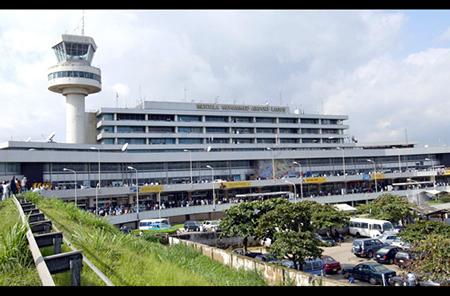
It started with a fire incident, on May 10, 2000. The local wing of the Murtala Muhammed Airport was razed at a time government could barely raise the funds needed for infrastructural development.
The Federal Government decided to explore a Design, Build, Operate and Transfer (DBOT) scheme. On August 7, 2000, the Ministry of Aviation and the Federal Airport Authority of Nigeria (FAAN) advertised for investors in the scheme. At the end of a competitive bidding process, the concession was granted to Sanderton Ventures.
Twelve months later, Sanderton was unable to commence construction. And as provided for in the guidelines, Bi-Courtney Aviation Services Limited (BASL) was invited on board as the reserved bidder. The firm thus executed the concession agreement with the Federal Government and FAAN in April 2003. One part of the agreement, which has remained unresolved till date, is the ownership of the General Aviation Terminal (GAT).
Despite the fact that FAAN issued a letter handing it over to Bi-Courtney, the agency held on to GAT, something the courts have frowned upon.
In his judgement, Justice Olotu stated that: “It is most unfortunate that the government entrenched and installed by democratic principles and the rule of law should blatantly and persistently be violating and desecrating the principles of the Rule of Law.
I believe that it is long overdue that the Federal Government and its agents/agencies retraced their steps or are made to retrace their steps.” The GAT matter remains a knotty issue, just as some other aspects of the concession agreement, such as the original design’s provision for hotel and conferencing facilities, a mono rail, fuel hydrant and power plant.
BASL says these were stifled by FAAN. All these shortcomings led the court to award N132bn against FAAN as damages payable to BASL up till 2012. FAAN is yet to pay the money, and interest continues to accrue.
Despite these challenges, the MMA2 terminal remains, as a former Aviation Minister Osita Chidoka attested, “the best terminal in Nigeria”.
The then minister had hailed the terminal for its world class facilities, noting: “MMA2 has offered the template about how government should go about the issue of the operation of airports in the country.” He said further: “We want to believe that the improvement in passenger’s experience in MMA2, the continuous quest for improvement, the continuous quest for excellence is sustained. This continuous improvement is something I would like other managers of airports in Nigeria to begin to mimic.
If they cannot truly capture it – all they need to do is just ‘copy and paste’ since the template is already there.” The evidence is there for all to see. At MMA2, which BASL has operated for over eight years, passengers are offered the Common User Passenger Processing System (CUPPS) and other technology innovations which provide the best of travel experience.
It is the only airport terminal in Nigeria to “have solely installed the latest version of a computer system that gives passengers and terminal users a fast, secure, safe and customer-friendly way to board a flight”. Neither the Murtala Muhammed International Airport in Lagos, nor the Nnamdi Azikiwe International Airport, Abuja, has these services.
Facilities such as e-check in, automatic e-gates and a full Baggage Reconciliation System, which Nigerians only enjoyed abroad, have been domesticated at MMA2. To achieve this, the airport had to change all the check-in counters and scales.
It also increased their number from 31 to 45. The design and manufacturing was done by the same company servicing Amsterdam Schiphol and many other major international airports.
The computers at the check-in desks were also changed and each computer is connected to a brand new boarding pass printer and a new baggage tag printer. To accelerate the check-in process, each airline operating from MMA2 has a ticket barcode scanner to call up tickets without any keyboard input.
For passengers travelling without luggage, BASL installed four self-check-in kiosks.
It also increased security features at MMA2 by installing e-gates before the security screening point, making it virtually impossible for an unauthorised person to enter the boarding zone. Each gate is equipped with a boarding pass scanner and brand new manifest printers.
A technology known as PAXTRACK has also been installed. With this, the airport can, among other things, analyse the peak periods and is thus better placed to plan. This facility also makes it easy to locate a passenger within the terminal and enable the boarding agent to have a better on-time performance. One major benefit of concession in the aviation sector is technology transfer.
For the new facilities to be installed and operated successfully, BASL workers were sent abroad for training. The manufacturers also came to Lagos to train about 300 staffers of airlines, BASL and ground handlers. About 200 of the airport’s security staff have obtained ICAO Certificate in Aviation Security.
Observers believe that the MMA2 story would have turned out even better had government complied with contractual agreements and court judgements, thus allowing MMA2 to continue its development and commence regional flights for which there is already approval.
“We have an agreement on this issue and have spent a fortune in complying with the requirements,” said BASL.
Now that the government is keen on concessioning four of its airports, the time to right the wrongs regarding the concession agreement with Bi-Courtney is certainly now. Doing otherwise would scare away those same investors government hopes to attract. Odubena is a Lagos based public affairs analyst.
END

Be the first to comment